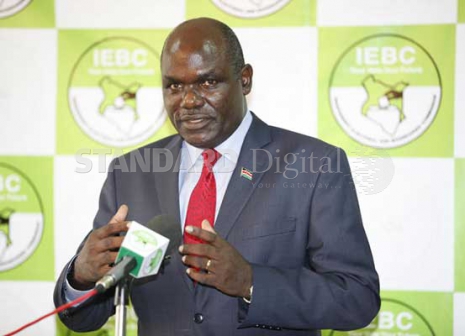×
The Standard e-Paper
Join Thousands Daily

The electoral commission has told the National Super Alliance (NASA) that the agency will not take responsibility if the August 8 elections do not go on as planned.
The Independent Electoral and Boundaries Commission (IEBC) said the election was already “contaminated and polluted” on account of delays in procuring technology to manage the polls.